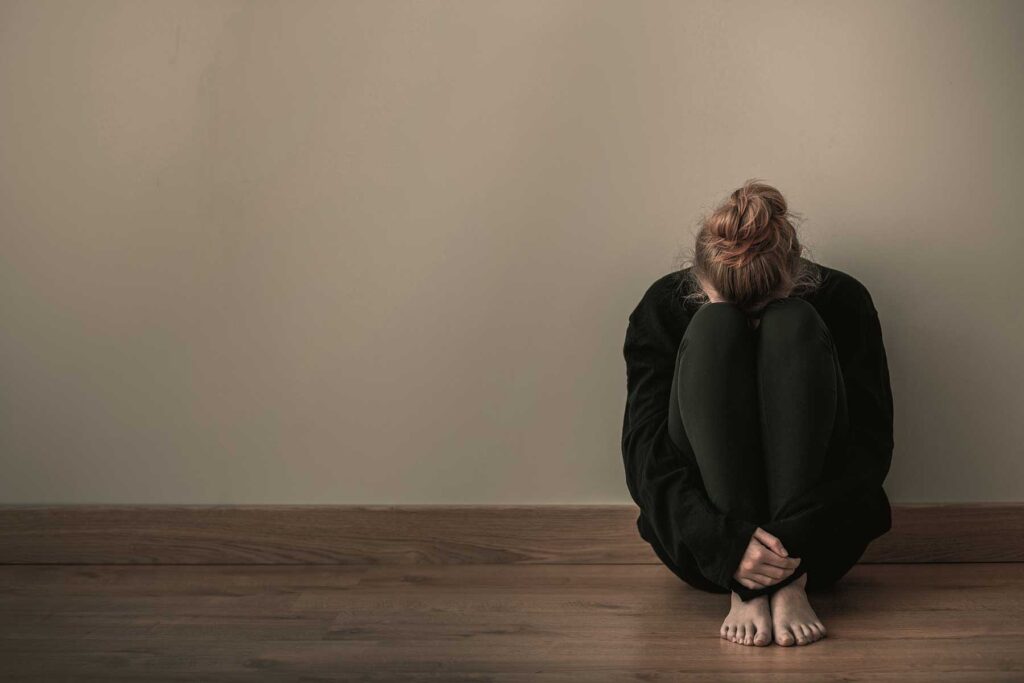Sometimes, feeling nervous—such as before a job interview or giving a speech—is a normal response. But worry and nervousness linger for some people and last much longer than the event day. Anxiety disorders are chronic mental health conditions that often coincide with substance use disorders (SUDs). Once you understand the link between anxiety and addiction, you will be better able to spot when you or a loved one is struggling with these co-occurring disorders so you can get them professional help.
If you or a loved one abuse drugs or alcohol to cope with debilitating anxiety, call Promises Brazos Valley at 979.426.0086. Our dual diagnosis treatment program can help you overcome substance abuse and learn how to manage anxiety safely and more effectively.
What Is Anxiety?
Anxiety can refer to the occasional nervousness you get before a stressful event. But anxiety can also be a chronic mental health condition in which someone experiences anxiety daily. The primary difference between the two is that situational anxiety disappears shortly after the event, while an anxiety disorder is long-term and often permanent.
The Connection Between Anxiety and Addiction
Both situational anxiety and anxiety disorders can correlate with drug or alcohol use. Here are a few examples:
- If you feel nervous before a blind date, you may have a drink beforehand to relax.
- If you fear flying, you may take a sedative medication before you get on the plane.
- If you have social anxiety, you may take benzodiazepines before entering a crowded place.
- If you have generalized anxiety and often feel on edge, you may smoke marijuana to settle your nerves.
These examples show how occasional anxiety and anxiety disorders can lead to self-medication with drugs or alcohol. Not everyone who uses substances to cope with anxiety symptoms will develop an addiction. However, the more often you self-medicate your anxiety, the more likely you become dependent on drugs and alcohol, increasing the risk of addiction.
Treating Anxiety with Prescription Medications
If you have an anxiety disorder or know someone who does, you may be familiar with the types of medications prescribed for this condition. Fast-acting medications provide relief from anxiety within 30 to 60 minutes. For the long-term management of anxiety, selective serotonin reuptake inhibitors (SSRIs) are often the medication of choice. Some common brands of these types of medications include:
- Ativan
- Klonopin
- Xanax
- Celexa
- Effexor
- Zoloft
SSRIs are technically antidepressants but have also been found helpful for anxiety symptoms. Unlike fast-acting medications, they must be taken regularly for at least two weeks before you feel improvement.
Reduce the Risk of Addiction to Anxiety Medications
SSRIs do not carry a risk of dependence or addiction, but fast-acting anxiety medications present a significant potential for abuse. Since they provide rapid relief through relaxation and euphoria, using your medication more often than advised can be tempting.
Taking higher or more frequent doses than directed by your doctor can increase your tolerance to the drug. This means you will need higher doses to feel the same level of calm. And the more you take, the more you increase your risk of getting addicted to your prescription.
How can you lower your risk of addiction from your anxiety medication? You can follow these tips:
- Use your medication only when necessary.
- Take only the dosage your doctor prescribed.
- Do not take your medication more often than advised.
If your anxiety symptoms feel beyond your control on your prescribed dosage, consult your doctor about an adjustment. It is not safe to increase your dosage without medical supervision.
Find Dual Diagnosis Treatment in Texas at Promises Brazos Valley
You may be vulnerable to addiction if you or your loved one self-medicate or take prescription medications to reduce anxiety. Alcohol and drugs, even medications prescribed by your doctor, can lead to physical or psychological dependence. Find freedom from anxiety and a co-occurring SUD by contacting Promises Brazos Valley today at 979.426.0086.

